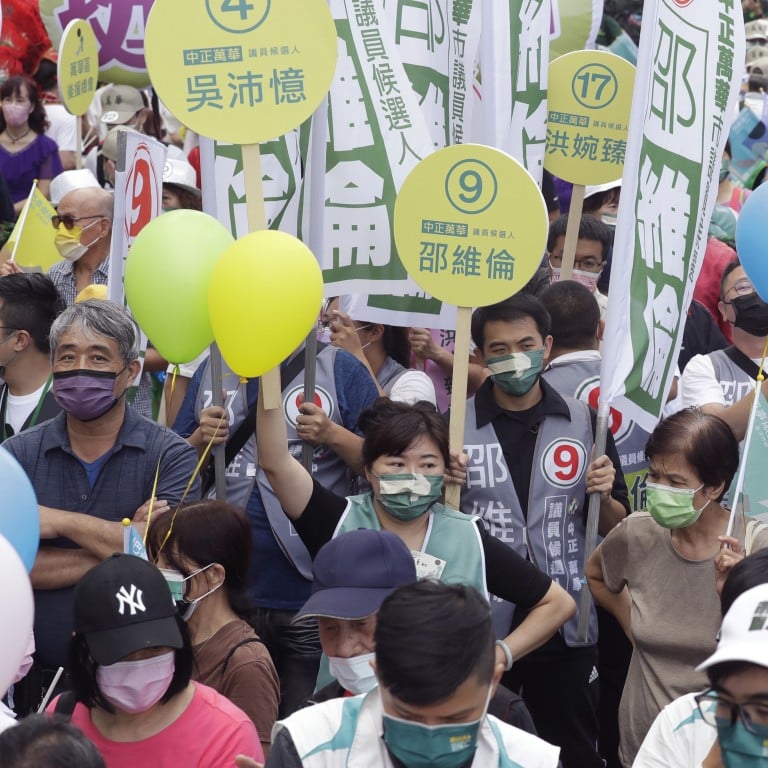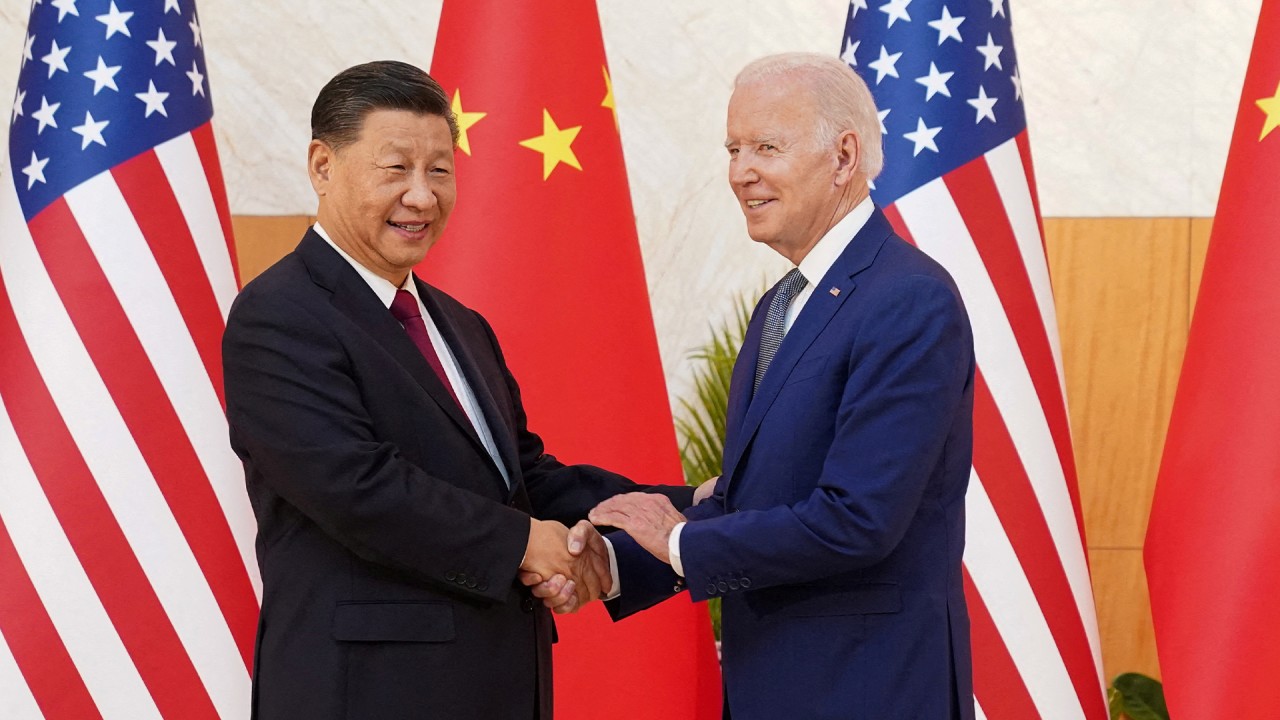
Covid-19 rules threaten thousands of votes in Taiwan local elections
- Electors who test positive from Monday will breach quarantine if they head to the polls, risking fines of up to US$32,000
- Around 75,000 voters could be affected, with some lawmakers and human rights groups calling the decision unjustified
An estimated 75,000 voters will be affected by the restrictions, according to the Central Epidemic Command Centre, based on current rates of infection and excluding those aged under 20 who are not eligible to vote.
Taiwan’s local election contenders line up with one eye on 2024
The island has reported some 129,000 infections in the past week, with a daily average of 18,400.
Under the current “5+n” rules, confirmed Covid-19 patients must quarantine at home for five days and can return to their usual activities after that with a negative test result. Anyone who tests positive from Monday – zero-day – will need to isolate until at least Saturday.
“This is in line with the communicable disease prevention law and is also to safeguard the health of the general public as other voters could also catch the disease in the polling stations if those infected are allowed to go cast the ballots,” a command centre official said on Monday.
Voters who test positive through rapid antigen testing but have yet to be officially diagnosed as a confirmed case are advised to refrain from going to vote, though there is no law penalising them for doing so, the official said.
People found to have a fever at the polls will be asked to cast their ballots in a separate booth. Polling stations will be disinfected from time to time, while voters are advised to wear masks and sanitise their hands after voting, he said.
The denial of voting rights to Covid-19 positive electors has triggered a heated debate in Taiwan, with some lawmakers and human rights groups criticising the island’s authorities for setting the restrictions.
‘Ticking time bomb’: Taiwan’s fertility rate to become world’s lowest by 2035
“None of the laws cited by the government has justified the decision to bar Covid-positive voters from exercising their voting rights granted by the constitution,” said Chiu Ee-ling, secretary general of Amnesty International Taiwan.
The decision also violated Article 25 of the International Covenant on Civil and Political Rights, which states that every citizen shall have the right and the opportunity to vote and be elected in elections, she said.
Chen Pei-jer, a medical professor at National Taiwan University and a researcher at Academia Sinica – the island’s top academic institution – called on the government to allow Covid-positive voters to cast their ballots.
“It will solve the problem as long as those voters put on isolation gowns to go to the polling stations,” he said.
But command centre head Wang Pi-sheng said this would create even more problems.
“First, it is risky to allow those voters to travel to the polling stations and secondly, this will create fear among other voters who are wary of being infected,” he said.
“Thirdly, it remains a problem if those voters want to be identified as Covid-19 patients,” Wang said at a news conference on Monday.
Other obstacles included the risk to election officials and the potential need to install separate polling stations all over Taiwan to accommodate Covid-positive electors, he said.
More than 19 million voters are expected to go to the weekend’s polls to elect the heads of 22 local city and county governments, including the six major municipalities. The local polls will also determine councillors and other grass-root level posts.


